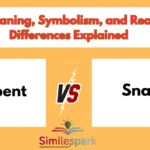When someone says, “Let’s meet next Friday,” what day comes to mind? Now imagine your coworker says, “I meant this Friday!” — and suddenly, your plans are in chaos.
The debate over Next Friday vs This Friday has caused confusion in workplaces, schools, and even family chats for decades.
This guide clears up that confusion once and for all. You’ll learn what each phrase truly means, why it’s often misunderstood, and how to avoid embarrassing mix-ups.
Let’s unpack this step by step — and by the end, you’ll never misinterpret “Friday” again.
Understanding the Core Difference Between “Next Friday” and “This Friday”
The short answer:
- This Friday refers to the upcoming Friday in the current week.
- Next Friday typically means the Friday of the following week, not the one coming up next.
Here’s how it looks on a calendar if today is Monday, October 6:
| Phrase | Refers To | Calendar Date |
|---|---|---|
| This Friday | The Friday in the current week | October 10 |
| Next Friday | The Friday in the following week | October 17 |
It seems simple enough, right? Yet people still mix it up — and that’s where context and timing play a huge role.
The Root of the Confusion
The English language has a tricky relationship with time expressions. The words this and next both rely on context — the day you’re speaking on and the week you’re thinking about.
Consider this:
- On Monday, “next Friday” feels distant, maybe nine or ten days away.
- On Thursday, “next Friday” might feel closer — but still one week after this Friday.
- On Saturday, your “this Friday” has already passed, so “next Friday” becomes the very next one.
In linguistics, this problem is called temporal deixis — words whose meanings shift depending on time and context. Think of “tomorrow,” “next week,” or “this afternoon.” They only make sense relative to now.
That’s why “Next Friday” vs “This Friday” sparks so much disagreement — both are grammatically correct, yet open to interpretation.
Grammar and Linguistic Insight
Let’s break this down linguistically.
According to Merriam-Webster, next means immediately following in time, order, or importance. But in casual speech, people often use next to mean the next occurrence after this week.
So linguistically:
- “Next Friday” = the Friday after the current week’s Friday.
- “This Friday” = the closest Friday coming up in the current week.
In temporal linguistics, this is known as a deictic shift, meaning the reference point changes based on when you speak.
For example:
“Let’s meet next Friday” — said on Monday may refer to Friday next week.
“Let’s meet next Friday” — said on Saturday may actually mean the upcoming Friday.
That’s why dictionaries and language experts don’t always agree — context wins every time.
“This Friday” Explained Clearly
When you say “this Friday”, you’re anchoring the reference point to the current calendar week.
If today is Tuesday, “this Friday” is only a few days away — the Friday of this week.
If today is Thursday, “this Friday” is tomorrow.
If today is Friday morning, “this Friday” means today.
Example Dialogues
You (on Tuesday): “I’ll call you this Friday.”
Meaning: In three days.
You (on Friday): “I’m free this Friday.”
Meaning: Today!
You (on Sunday): “I’ll see you this Friday.”
Meaning: The Friday coming in this week — not the one after.
To visualize this, here’s a simple timeline.
| Today | “This Friday” Means | Number of Days Away |
|---|---|---|
| Monday | Friday this week | 4 days |
| Wednesday | Friday this week | 2 days |
| Friday | Today | 0 days |
| Sunday | Upcoming Friday this week | 5 days |
“Next Friday” – What It Really Means
“Next Friday” moves the reference point forward into the following week. It means the Friday after this week’s Friday.
So, if today is Monday, and this Friday falls on October 10, then “next Friday” means October 17.
Example Sentences
- “We’ll meet next Friday to finalize the project.” → The Friday after the upcoming one.
- “Let’s go out next Friday night.” → Not this week, but the following week.
But here’s the tricky part: some people use next loosely to mean upcoming. That’s how miscommunication starts.
Pro Tip
When you’re scheduling meetings, always specify the date — especially in professional settings. A single word like next can cost teams a week of lost coordination.
Real-World Scenarios
Scenario 1: It’s Monday
“This Friday” means the Friday coming up in the current week.
“Next Friday” means the one in the following week.
Example:
“Let’s meet this Friday for coffee.” — October 10
“Let’s meet next Friday for coffee.” — October 17
Scenario 2: It’s Thursday
“This Friday” = Tomorrow.
“Next Friday” = One week from tomorrow.
Example:
“We’ll talk this Friday.” — Tomorrow
“We’ll talk next Friday.” — The Friday after tomorrow
Scenario 3: It’s Already Friday
“This Friday” = Today.
“Next Friday” = The following Friday.
Example:
“Let’s meet next Friday.” → One week from today.
Here’s a simple summary table:
| Current Day | “This Friday” | “Next Friday” |
|---|---|---|
| Monday | Friday this week | Friday next week |
| Thursday | Tomorrow | A week from tomorrow |
| Friday | Today | A week from today |
| Saturday | Next week’s Friday | The week after next |
Regional and Cultural Differences
Language habits differ globally. Here’s how various English-speaking regions interpret these phrases:
| Region | Common Interpretation of “Next Friday” | Common Interpretation of “This Friday” |
|---|---|---|
| United States | The Friday after this week’s Friday | The upcoming Friday in the current week |
| United Kingdom | The upcoming Friday (often same as “this Friday”) | Sometimes used for today if it’s Friday |
| Australia / New Zealand | Usually same as the US interpretation | Refers to the Friday of the current week |
| Canada | Depends on region; both usages exist | Usually the nearest Friday |
Quick Tip
When working internationally (especially online), always include dates to avoid cultural misfires.
“Let’s meet on Friday the 18th” will never cause confusion.
How to Communicate Clearly
Ambiguity can be avoided with a few simple habits.
Clear Communication Tips
- Use specific dates. Instead of “next Friday,” say “Friday the 18th.”
- Add context. Phrases like “this coming Friday” or “Friday next week” remove doubt.
- Double-check understanding. If someone says “next Friday,” confirm by asking, “Do you mean this week or the following week?”
- Write clearly in emails and texts. Example:
- “Let’s meet on Friday, October 17 (next week).”
- “I’ll call you this Friday, the 10th.”
Common Alternative Phrases
| Ambiguous Phrase | Clearer Alternative |
|---|---|
| This Friday | This coming Friday |
| Next Friday | Friday next week |
| Next weekend | The weekend of [specific date] |
Common Mistakes People Make
Here are a few common pitfalls when discussing Fridays:
- Assuming shared context. Your “next Friday” might not be their “next Friday.”
- Ignoring the current day. Saying “this Friday” on a Saturday often means next week’s Friday — confusing everyone.
- Overusing “next.” It sounds clear but often creates more questions than answers.
- Failing to specify dates in work settings. Especially in emails or international calls.
Pro tip: Always write dates in professional communication. A small detail can prevent scheduling chaos.
Visual Aids
Weekly Timeline Example
Imagine today is Tuesday, October 7:
| Term | Meaning | Date |
|---|---|---|
| This Friday | Friday of the current week | October 10 |
| Next Friday | Friday of the following week | October 17 |
If today is Saturday, October 11:
| Term | Meaning | Date |
|---|---|---|
| This Friday | Friday coming up (October 17) | October 17 |
| Next Friday | Friday after that | October 24 |
As you can see, everything shifts depending on where you stand in the week.
Common Misunderstanding: The “Weekend Shift”
When the weekend hits, people’s perception of “this week” often resets.
For example:
On Saturday, you might think of the upcoming Monday as part of next week.
But technically, this week doesn’t end until Sunday night.
That shift leads many to call the next Friday “this Friday” even though it’s technically part of next week. It’s not wrong — it’s just human.
That’s why written clarification matters more than spoken habit.
Real-Life Case Study
Case Study: A Missed Business Meeting
Sarah, a marketing manager, emailed her team on Monday:
“Let’s finalize the campaign next Friday at 2 PM.”
Half the team showed up that Friday (four days later). The rest showed up the following Friday. The confusion caused delays, missed approvals, and a frustrated boss.
The fix: Sarah later clarified all dates with numbers — “Friday, October 17” — and never had an issue again.
Lesson: Clarity beats assumption every time.
5 FAQs About “Next Friday” vs “This Friday”
What does “this Friday” mean?
It refers to the Friday in the current week. If today is Monday through Thursday, “this Friday” is just a few days away.
What does “next Friday” mean?
It usually means the Friday after the current week’s Friday, about 7–14 days away depending on the day you say it.
Does “this Friday” include today if it’s Friday?
Yes. If today is Friday morning, “this Friday” refers to today.
How can I avoid confusion between “next Friday” and “this Friday”?
Always use specific dates (e.g., “Friday the 17th”) or phrases like “this coming Friday” or “Friday next week.”
Do regional differences affect the meaning?
Yes. In the UK, “next Friday” often means this upcoming Friday, while in the US, it usually refers to the Friday after this week’s one.
Conclusion: Mastering Time Language in English
The phrases “this Friday” and “next Friday” might sound similar, but their meanings hinge on timing, context, and geography.
To recap:
- This Friday = the Friday in this week.
- Next Friday = the Friday in the following week.
When in doubt, say the date. Clarity in language reflects clarity in thinking — and it ensures your Friday plans (and meetings) happen when you expect them to.
Final Tip:
“When in doubt, don’t just say Friday — put it in writing with the date!”










